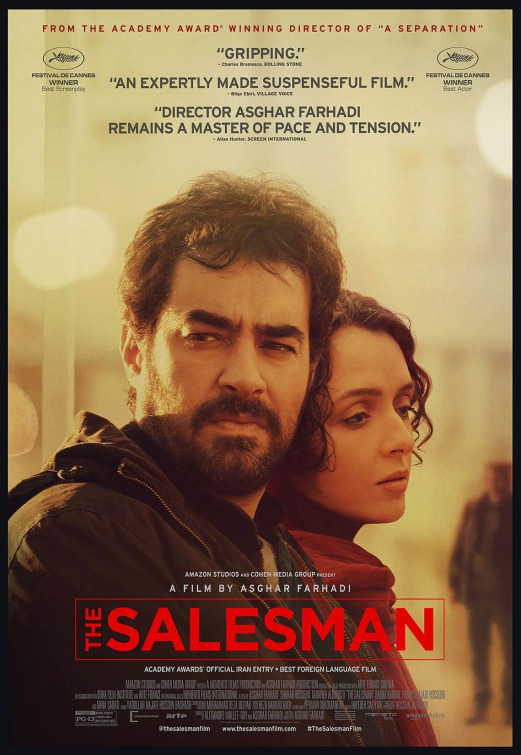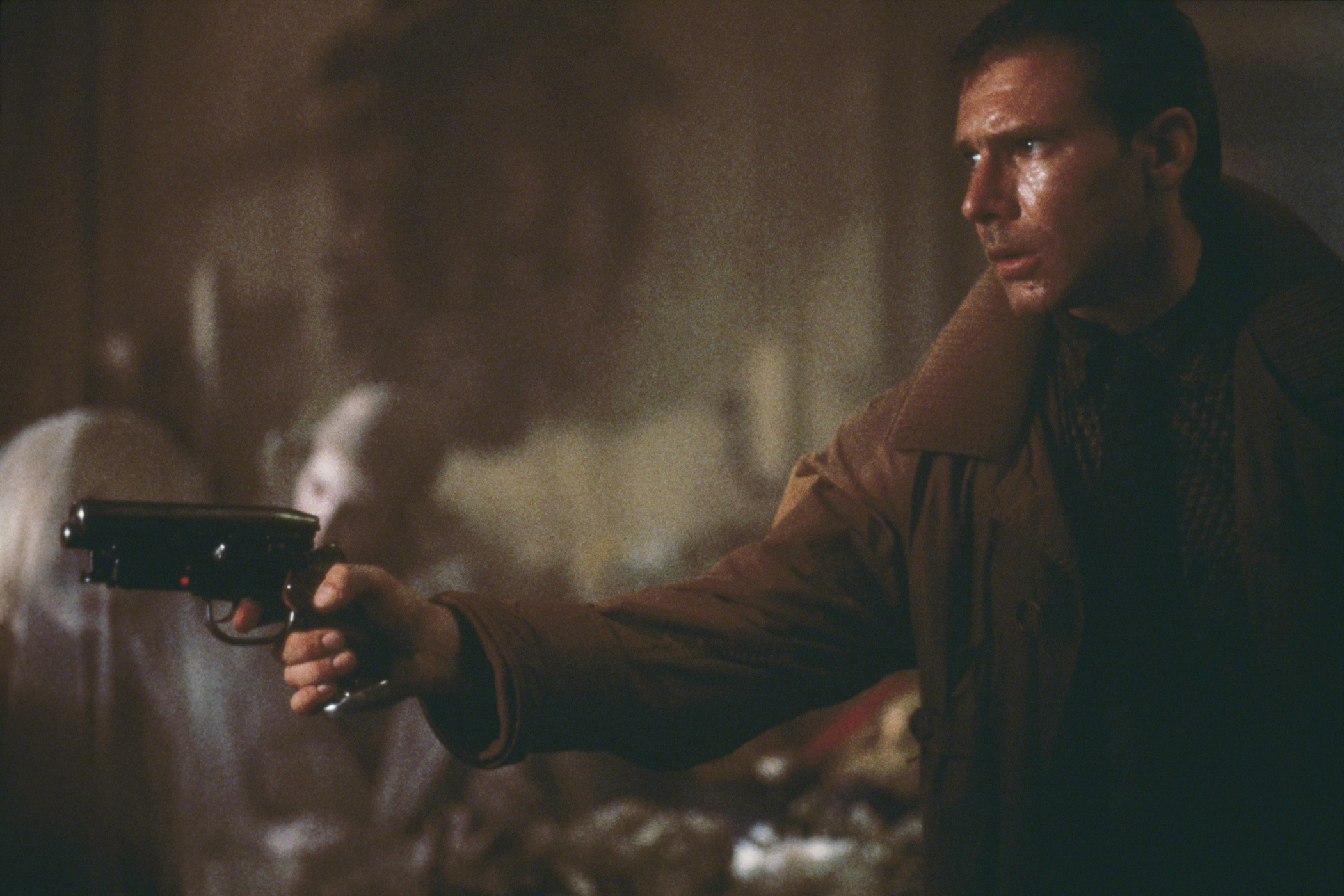Post by SnoBorderZero on Feb 19, 2017 20:15:23 GMT -5

Asghar Farhadi has long been a powerhouse director in Iran, both for his stage work and more recent foray into filmmaking. In 2011, he burst onto international acclaim with the Oscar winning film A Separation, one of the best films of this decade and a stunningly realistic portrayal of examining domestic issues and a woman attempting to break away from her husband in order to pursue the life that she wants. Not only was it an excellent film in its own right, but it also carried the tag of a film that depicted middle-class Iranians honestly and a far cry from the media coverage that Western cultures often absorb from the Middle East. In A Separation and his other works such as 2009's About Elly, Farhadi is able to craft suspense without resorting to sensational drama and instead focuses on the little arguments and lies in life to generate tension and unease amidst his characters. His latest work, the Oscar nominated film The Salesman, finds Farhadi continuing his streak of brilliant writing and directing that has made him one of the very best contemporary filmmakers out there.
The Salesman centers around an acting couple, Emad (Shahab Hosseini) and his wife Rana (Taraneh Alidoosti), who are currently the leads in an Iranian adaptation of Arthur Miller's famous play Death of a Salesman. After being forced to evacuate their apartment, they settle into an apartment leased to them by a fellow actor in their troupe. They learn that the previous tenant has left her belongings there, and that she and the landlord are at odds regarding her gathering the rest of her belongings. They also learn that she was somewhat of a prostitute, and unsavories have often come and gone from the residence, which the landlord conveniently failed to inform them about. One night while Emad is gone, Rana is assaulted in their home by a man believing the former tenant to still live there. What follows is Emad's personal conquest for revenge that threatens their marriage and leaves everyone scrambling for answers to this horrible crime.
While Farhadi's films are certainly adult dramas first and foremost, it can be easy to overlook that each of his films are also finely crafted suspense thrillers that carry twists and turns that leave the viewer hanging on every word and finding. His first act is often a breezy insight into his characters' lives and carries only subtle hints of any domestic issues or character flaws, allowing the audience to settle in but also wonder where any of this is going. Suddenly, a major plot point occurs (generally off camera) that drastically shakes up this seemingly unassuming world, and from there Farhadi gradually builds and builds the tension that lingers until the final frame. Farhadi is an exceptionally fantastic writer and director; his style feels so subtle and yet his films carry so much dramatic weight without resorting to typical suspense tropes that makes it all the more impressive. His characters are very layered, and he rarely has any that can be labeled as good or bad or any other simplistic categorizing. The Salesman follows suit, mostly focusing on Emad's obsession with finding Rana's assailant and questioning whether his actions are out of defending his wife or defending his own reputation. Emad's transformation takes a turn for the worst when a reveal is made in the film's final act, and Rana, who for the majority of the film is a battered wife afraid of being alone, is forced to assert herself into a situation no longer about her.
Farhadi is a very impressive filmmaker for numerous reasons, and one aspect that cannot be ignored is how universal his films are despite firmly distancing itself from traditional Western storytelling and maintaining an Iranian perspective. He explains only what he feels necessary, and in The Salesman, he allows the imagination to speculate that the worst of atrocities has been committed towards Rana. It never becomes clear if Rana was
raped or not
, and even speaking or referring to it feels as horrible an act to perform. Her reluctance to confide even in Emad provides the viewer with an insightful look into Iranian culture where a woman is the victim in both the circumstance and its aftermath. In Western cultures it's second nature to contact law enforcement and run various tests right away, whereas the characters in The Salesman, both men and women, offer conflicting counsel as to whether to get police involved with the assault or keep it quiet and move on. This conflict is what drives the initial wedge between Emad and Rana, and neither character wants to confront the issue directly and instead allow it to fester in their apartment and spill anger and confusion over them as a result. Some of the most fascinating interactions between Emad and Rana in the film are when they aren't speaking at all, unable to find the words to say that will resolve the situation in a matter that will satisfy them both. One of the most difficult decisions a filmmaker must make is the balancing act of how much to give the audience and how much to leave to silence, imagination, and facial expressions from the actors. Farhadi is masterful in this across his films, and to remark that his work carries a subtle power to it is an understatement. The Salesman isn't Farhadi's best work in either character drama or suspense, but for me there wasn't anything really wrong with it either. There are very clever similarities between Emad and Rana's conflict and the play that they act in surrounding ideas of happiness and honesty and possibly being unsure if you really know the person that you're in love with. While the actual play doesn't make for a major element of the film, there is no doubt that Arthur Miller's and Asghar Farhadi's worlds are very much intertwined. This is another highly impressive and mature work from Farhadi, who continues to make a case for being recognized as one of the most unique and masterful voices in cinema. The Salesman doesn't quite reach the drama of A Separation or the sheer suspense of About Elly, but it works exceptionally well as a sort of hybrid merged from the two films. The Salesman is one of the best films of 2016 and another chance for Western audiences to indulge in the brilliance of Asghar Farhadi.
8/10



